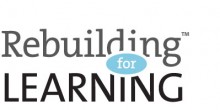Family and Youth Subcommittee (Rebuilding for Learning Steering Committee)
Lineage and Purpose
The La Crosse Community Collaboration
The Family and Youth Subcommittee (Rebuilding for Learning Steering Committee) is a subcommittee of the La Crosse Community Collaboration, which is a partnership between three local governmental entities: (1) The School District of La Crosse, (2) the City of La Crosse and (3) La Crosse County. The Collaboration, which began in 2005, has a meeting once per quarter which is chaired jointly by the School District of La Crosse Superintendent, the Mayor of the City of La Crosse, and the La Crosse County Administrator. Participants include Department Heads / Managers from those three organizations in the functional areas listed below. All members of this larger group are part of subcommittees which align to the functional areas.
- Planning
- Finance
- Human Resources
- Information Technology
- Buildings and Ground
- Family and Youth Services
- Purchasing
The stated mission of the Community Collaboration is, “To strengthen collaboration and improve communication between our organizations.” The subcommittees are charged with carrying out this within each functional area.
At each quarterly meeting, all subcommittees provider a verbal report on their activities over the last quarter and any forthcoming subcommittee activities of note.
The Family and Youth Services Subcommittee
In 2011, the Family and Youth Subcommittee adopted a conceptual framework outlined in Howard S. Adelman and Linda Taylor’s book, “Rebuilding for Learning,” to advance the mission of strengthening collaboration and improving communication within the family and youth services area. In adopting this framework, the subcommittee began to refer to itself as the “Rebuilding for Learning Steering Committee.” The descriptive term “Rebuilding for Learning Initiative” now refers to the subcommittee’s activities.
Under the new framework, the RBL Steering Committee adopted the goal of ensuring all children have the opportunity to succeed by addressing barriers students face that prevent them from coming into the classroom “ready to learn.” Examples of these barriers, stemming from challenges faced by either the child or the child’s parents, include: (a) a mental health issue; (b) a substance abuse issue; (c) and abusive or neglectful parent; (d) a lack of basic needs; (e) behaviors which disrupt the classroom and put the child at risk of entering the criminal justice system either as a youth or later as an adult.
To address these barriers, the RBL Steering Committee adopted Adelman and Taylor’s strategy of working towards creating more integrated and seamless systems across three levels of intervention: (1) prevention, (2) early intervention, and (3) emergency intervention.
One of the first objectives of renamed “RBL Steering Committee” was to plan a summit bringing together School, City, County and community providers of services to children and youth. This first summit in August of 2011 focused heavily on examining local systems of intervention to identify gaps and overlaps. From this first summit came the objectives of creating and maintaining a website and addressing perceived communication barriers that were created by the need to keep certain child and youth information confidential.
Recent summits (both in 2015 and 2016) have focused on increasing trauma-informed practices throughout our three agencies as well as community service agencies. They have also sought to increase awareness of RBL activities as well as available community services and promising initiatives (i.e., neighborhood revitalization, community policing, local mental health services). Attendance at the summits has grown each year, with over 1,000 individuals attending the 2016 summit.
Since 2011, the RBL Steering Committee has served as an important collaboration point for several projects and initiatives that have advanced the strategy of creating more integrated and seamless intervention systems. These have included:
- Developing a Memorandum of Understanding that led to better and more streamlined communications between the School District and La Crosse County about the status and needs of specific children and youth.
- Launching a collaborative effort (La Crosse Area Family Collaborative, LAFC) that includes new Neighborhood Social Workers who are integrated with local schools and serve as an early intervention resource to stabilize families (with the County, City and School District all contributing funding and/or in-kind resources).
- Developing a comprehensive “system of care” to address behaviors that put youth at risk of entering the juvenile justice system and which more closely aligns policies and practices of the school, county and community youth service providers.
- Creating a jointly funded administrator position to manage the new “system of care,” help administer the LAFC, assist with coordination RBL activities and facilitate the development of a 501(c)3 organization.
- Begun developing a 501(c)3 organization.
Below are videos from our Rebuilding for Learning Summits held in 2016 and 2015.
2016
2015
